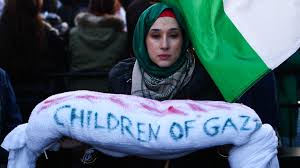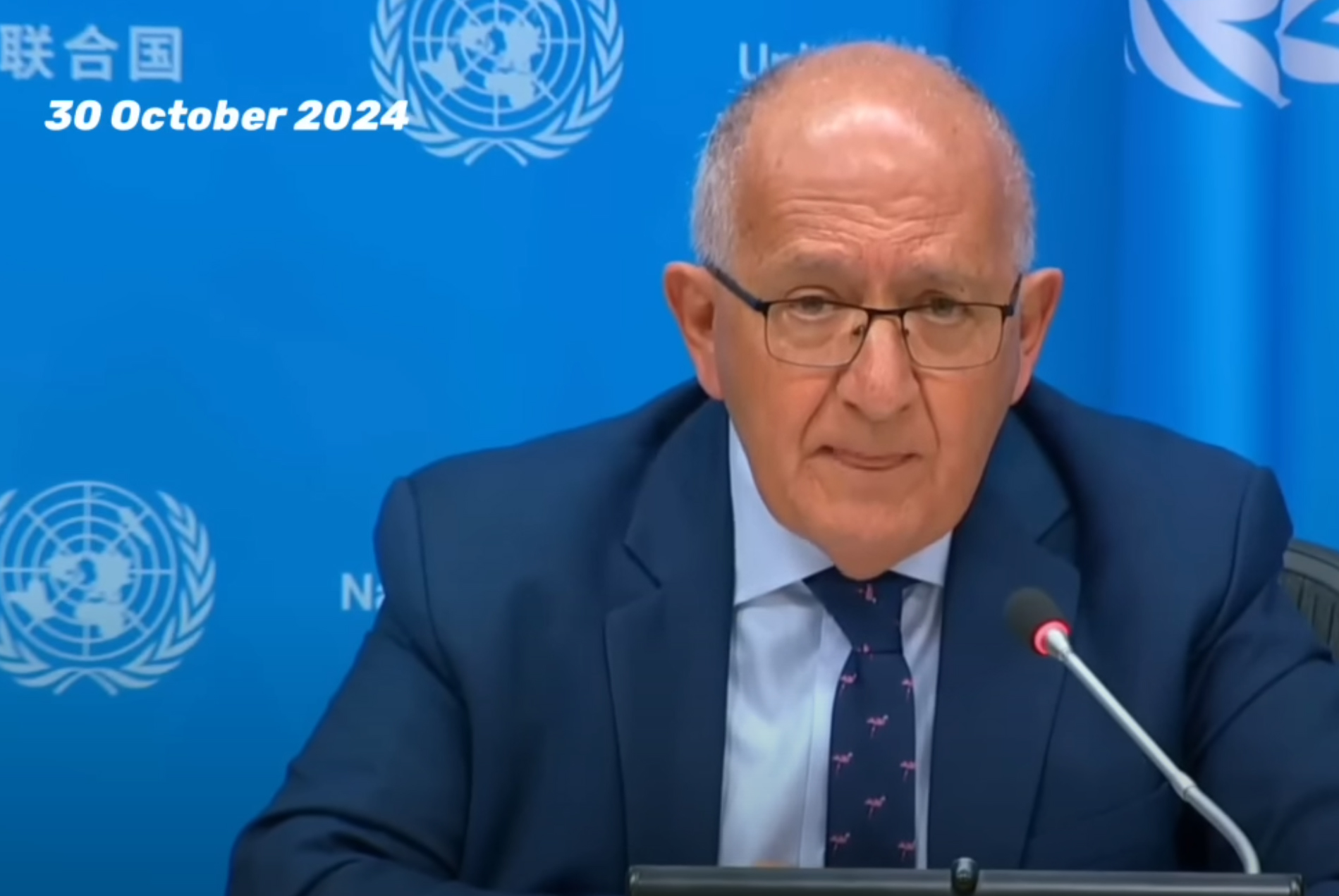At a recent United Nations briefing, Chris Sidoti, an International human rights lawyer from Australia working as a UN investigator along with former International Criminal Court judge Navi Pillay expressed grave concern over the staggering loss of life among Palestinian children amid the ongoing Israel-Palestine conflict.
According to the official, at least 13,391 children have been killed in Gaza, with 786 of those under the age of one. In addition, 165 children have died in the West Bank. The official provided these statistics as a singular but poignant representation of the conflict’s human toll, emphasizing, “Kids aren’t terrorists.” His statement underscored the innocence of these young victims and framed their deaths as an unacceptable consequence of the prolonged and intensifying conflict in the region.
The official addressed allegations against the United Nations Relief and Works Agency (UNRWA), which has faced scrutiny for allegedly employing individuals with extremist affiliations. While acknowledging the dismissal of nine UNRWA staff members following internal investigations, he pointed out that this number surpasses the dismissals by the Israeli Defense Forces (IDF) for alleged violations of international humanitarian laws, including war crimes. According to the official, UNRWA has made strides to uphold accountability, despite accusations to the contrary, by removing staff where misconduct was identified.

Moreover, he highlighted the financial and logistical impact of UNRWA’s ongoing support for Palestinians in occupied territories, noting that its presence has saved Israeli taxpayers billions of dollars over the past 57 years. Under the Fourth Geneva Convention, Israel, as an occupying power, is legally obligated to provide essential services and infrastructure—such as healthcare, education, and social security programs—to residents of occupied territories. Instead, these costs have been largely shouldered by UNRWA, backed by international donors. Should UNRWA’s presence be eliminated, the financial strain on Israel could become overwhelming, the official warned.
Reflecting on the historical depth of the conflict, the UN official referred to what he described as a “100-year war,” noting that the violence, particularly over the last 13 months, has taken an unprecedented toll on civilian lives. He described the current period as one “without precedent” and cautioned that the length and intensity of this recent phase of the conflict have led to global desensitization, leaving the international community, in his words, “shrugging our shoulders.”
In addition to the mounting death toll, the official underscored the broader impact of the conflict on Palestinian children. Thousands have been injured, displaced, or psychologically scarred by the violence, and reports indicate that the number of child amputees in Gaza is the highest in recorded modern warfare. He expressed personal anguish as a father, grandfather, and soon-to-be great-grandfather, saying, “Kids mean something to me.”
Further addressing the trauma among children, he cited recent Israeli government statements about Gaza, including a remark from Israel’s Defense Minister describing Palestinian civilians as “human animals” and vows to restrict food, water, and medical supplies to Gaza. Such statements, the official argued, represent efforts to dehumanize Palestinians, which he suggested contributes to a culture of indifference regarding the lives of Palestinian children.
In a reflection on the future, he questioned what one million children in Gaza would face as they grow up amid this violence and instability. “The conflict in Gaza is an Israeli terrorism creation factory,” he said, warning that the current situation could engender resentment among future generations. Drawing historical comparisons, he argued that while other post-war nations like Germany and Japan rebuilt with international support, Gaza remains mired in violence with no end in sight. “This war has been going on for 100 years,” he remarked, emphasizing that unless the violence ceases, the impact on Gaza’s children could have a lasting influence.
The official also highlighted a significant recent legal decision by the International Court of Justice (ICJ), which ruled the occupation unlawful. He described the decision as a “landmark event for lawyers” and argued that it provides a foundational basis for future peace negotiations. “The foundation is the law,” he said, adding that the ICJ ruling obligates all member states to avoid enabling or supporting the occupation. Member states are therefore urged to change their policies and adopt actions that distinguish between the sovereign state of Israel and occupied Palestinian territories.
In response to questions about the role of third-party countries in the conflict, particularly those supplying weapons to Israel, the official mentioned that the UN Human Rights Council recently mandated investigations into arms transfers to Israel and violations by Israeli settlers. He expressed frustration that these investigations have stalled due to funding constraints, describing the need to scrutinize arms supplies and settler violence as urgent.
Addressing the UNRWA ban by Israel’s Knesset, he warned of “serious implications” for aid and assistance to Palestinians if UNRWA were excluded from the region, given that the agency serves as the primary provider of services and aid to Palestinian refugees. He criticized what he described as hypocritical claims by certain UN member states, who argue against the commission’s open-ended mandate, calling these objections “tired old complaints” that detract from the real issue of civilian suffering.
In response to further questions, the official stressed the importance of contextualizing recent events within the history of the occupation, rejecting the notion that the conflict began on October 7. He argued that while the occupation itself does not justify any acts of violence, it provides a framework for understanding the current crisis. He condemned what he called the “dehumanization” of Palestinians, saying such rhetoric only serves to deepen divisions and prolong suffering.
The official concluded by expressing a sense of both hope and frustration. He praised the ICJ decision as a significant step forward and noted that the UN’s legal foundation provides a path toward peace. Yet he acknowledged the harsh reality that neither the ICJ ruling, nor UN resolutions, nor diplomatic negotiations had prevented the death of a single child in the conflict.
“Not a single child has been spared,” he lamented, emphasizing the moral urgency for an end to the occupation and a lasting peace that would protect children on all sides.




